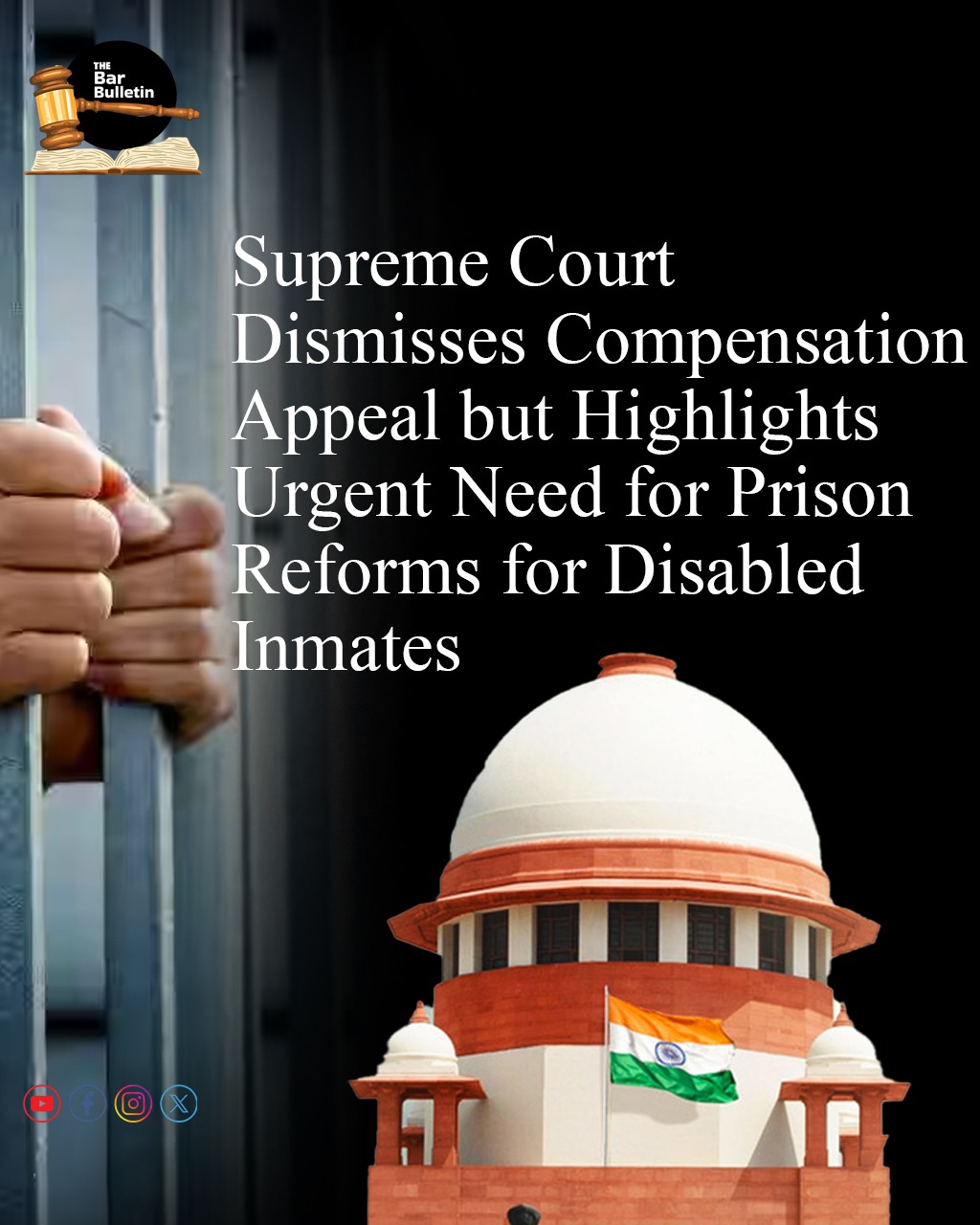The Supreme Court has dismissed a writ petition seeking enhanced compensation by a disabled advocate who alleged custodial torture and denial of basic amenities during incarceration. The petitioner, diagnosed with Becker Muscular Dystrophy, had sought a Writ of Certiorarified Mandamus challenging the Madras High Court’s judgment dated 29.11.2022, invoking the Rights of Persons with Disabilities Act, 2016, the Protection of Human Rights Act, 1993, and Articles 14 and 21 of the Constitution.
The advocate had been arrested based on what was later determined to be a false complaint. During his time in custody, he reportedly faced physical abuse, lack of access to medical care and assistive devices, and undignified conditions in both police and prison custody. The State Human Rights Commission initially awarded him ₹1 lakh as compensation, which the Madras High Court later enhanced to ₹5 lakhs. Dissatisfied, the petitioner approached the Supreme Court seeking further enhancement to ₹50 lakhs.
A Bench led by Justice R. Mahadevan acknowledged the unlawful nature of the arrest and the inhumane conduct of the police. However, it found insufficient evidence to attribute deliberate or targeted abuse to the prison authorities. The Court held that while systemic deficiencies in prison infrastructure for persons with disabilities are deeply concerning, they did not, in this case, give rise to personal liability warranting additional compensation.
Despite declining to enhance the compensation, the Court issued a series of far-reaching directions aimed at systemic reform. Recognising that incarceration does not strip individuals of their constitutional rights to dignity and equality under Articles 14 and 21, the Bench reaffirmed the State’s obligations under the RPwD Act to ensure healthcare, accessibility, and reasonable accommodation for persons with disabilities in custodial settings.
Key directives include a mandate to the State of Tamil Nadu to conduct a comprehensive accessibility audit of all prisons, upgrade facilities in accordance with the 2021 Harmonised Guidelines for Universal Accessibility, and implement regular sensitisation and training programmes for prison personnel on the rights and needs of disabled inmates.
While rejecting the plea for enhanced compensation, the judgment stands as a significant reaffirmation of the constitutional, statutory, and ethical duties owed to incarcerated persons with disabilities signalling a clear call for reform in custodial care systems across India.
![]()



